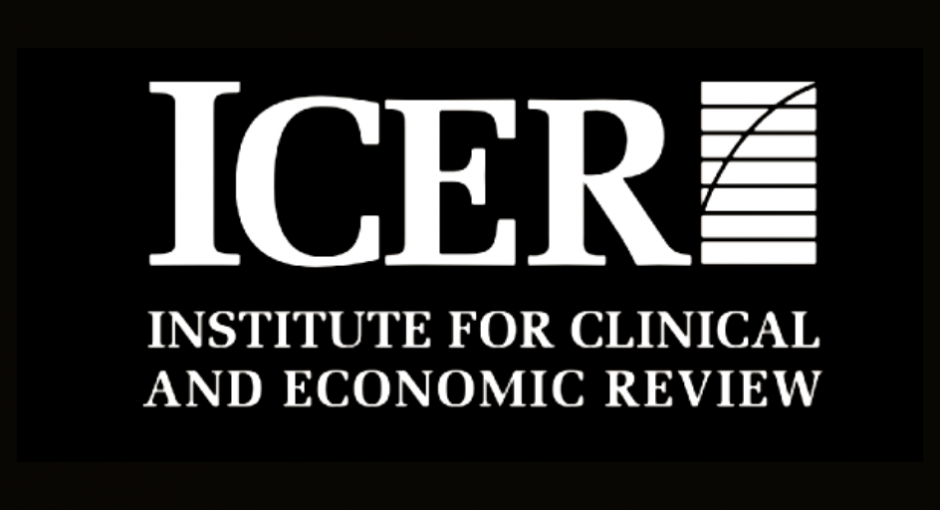The Institute for Clinical and Economic Review (ICER) has issued a draft report concluding four drugs have demonstrated effectiveness and value in reducing hospitalizations of COVID-19 patients. The independent nonprofit group evaluates prescription drugs and medical treatments’ cost effectiveness and relative improvement to quality of life. The organization is highly respected by medical professionals, insurers, pharmacy buyers and government policy makers in helping to determine which drugs are cost-effective and are worth the value.
The drugs are sotrovimab, a monoclonal antibody manufactured by Glaxo SmithKline and marketed as Xevudy; the antiviral molnupiravir, manufactured by Merck; antiviral ritonavir, a Pfizer product used to treat HIV infection; and fluvoxamine, a generic selective serotonin reuptake inhibitor used primarily to treat obsessive compulsive.
ICER also said it would make a determination about the efficacy of remdesivir, marketed by Gilead as Veklury, at a later date. The U.S. Food and Drug Administration (FDA) approved Veklury (remdesvir) late last month for use on outpatients with mild-to-moderate COVID-19, clearing the way for it to qualify for 340B pricing at hospitals. Health care services and group purchasing company Vizient reported late last month that its members spent more than $1 billion in the fourth quarter of 2021 on remdesivir, more than on any other drug.
ICER analyzed the findings of numerous clinical trials that examined the ability of the drugs to reduce hospitalizations and deaths of acutely ill COVID-19 patients.
The trials were specially designed to determine whether each drug could keep COVID-19 outpatients out of the hospital. Study subjects initially reported mild to moderate symptoms but were at high risk for severe illness. The number of participants in each study ranged from just over 1,000 for sotrovimab to more than 2,200 for paxlovid. The trials mostly started in mid-2021 and ended last fall.
Patients who received paxlovid experienced an 88% relative risk reduction for hospitalization and death versus a placebo; a 79% relative risk reduction for those who received sotrovimab; a 32% relative risk reduction for those given fluvoxamine; and a 30% relative risk reduction for those who received molnupiravir.
Courses of treatment, excluding the cost of administration, monitoring, and markups, ranged from $12 for fluvoxamine to $2,100 for sotrovimab. The average cost for a regimen was $837.
The cost of the amount of drugs that need to be dispensed to avoid a hospitalization ranged from $7,000 for fluvoxamine to $91,000 for sotrovimab. The average was $45,500.
By comparison, the average charge for a COVID-19 hospitalization that requires complex care is nearly $318,000, according to FAIR Health. Insurers are paying more than $98,000 on average to cover the costs for each of those patients. A COVID-19 patient receiving non-complex care is charged an average of nearly $75,000, while insurers are shelling out more than $33,500 to cover each of those claims.
Overall, ICER gave evidence ratings of “B+” to sotrovimab and paxlovid and “C+” to molnupiravir and fluvoxamine. Most of the molnupiravir and fluvoxamine studies analyzed by ICER took place in Europe and Latin America. ICER said the different clinical landscapes among nations needed to be taken into consideration.
Some of the drugs do come with known clinical risks. Molnupiravir can damage bone and cartilage, and it is not advised to be prescribed to pregnant or breastfeeding patients. Fluvoxamine can also cause suicidal thoughts.
The study also has a limitation in that much of the research was conducted before the now-dominant omicron variant of COVID-19 arrived. Although that strain is more contagious than the previous delta variant, it also tends to have milder symptoms.
Nevertheless, ICER concluded that “high-quality evidence demonstrated that if given within a limited number of days following initial symptoms of COVID-19, all four drugs…were superior to placebo in reducing hospitalization related to the acute infection.”
However, the organization was still hedging its bets. It said in a statement that its publication of preliminary data “marks the midpoint of ICER’s eight-month process of assessing these treatments, and the findings within this document should not be interpreted to be ICER’s final conclusions.”


